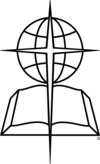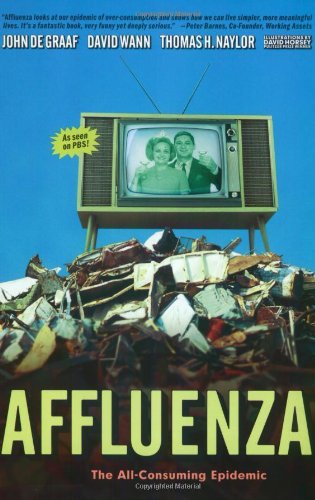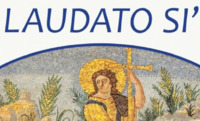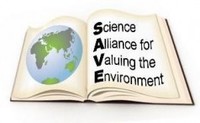Search
249 items
-
A Shared Quaker Statement: Facing the Challenge of Climate Change
This statement calls for leaders to make sound decisions with regard to climate change, and for all people to cherish the Earth for future generations. The following introductory section highlights the sense of urgency:
"As Quakers, we understand anthropogenic climate change (climate change due to human activities) to be a symptom of a greater challenge: how to live sustainable and justly on this Earth.
We recognize that the current rise of greenhouse gas emissions is leading to an unprecedented rate of increase in global average surface temperature of extreme detriment to the Earth’s ecosystems and species, including human beings.
We recognize that catastrophic global climate change is not inevitable if we choose to act urgently." -
A Quaker Response to the Crisis of Climate Change
A Quaker Response to the Crisis of Climate Change discusses how climate change and consumer waste negatively impacts disadvantage populations the most. The first two paragraphs of the introduction are stated below:
"The crisis of global climate change represents a supreme test of humanity’s collective wisdom and courage. Our immoderate use of the Earth’s resources violates the entire biosphere, threatening the lives of millions of people and the habitats of thousands of species. Many of the poorest people are already suffering a changed climate; they are
asking us all to act.
How has humanity produced this crisis? Our faith response is that prevailing social values have obscured what it means to live authentically on this Earth. In rich European countries we consume more than we need within an economic system that divides us as a society; in much that we do, we cause harm to the planet and each other without enriching our lives." -
Baptists and Climate Change
Among the Series on Climate Change and Major Religions, this Baptists and Climate Change article serves as a message to all Baptists. Despite their wide range of views and beliefs on environmental issues, the authors urge individuals to come together and take action to care for creation as God had intended. The following excerpt highlights the current division among members:
"The apparent contradiction between the Biblical ideals of dominance and stewardship is one of many divisions in Baptist discussions of climate change/global warming. Among more liberal American Baptist churches, members said in recent interviews, hardly anyone is a global warming 'skeptic.' But among Southern Baptists, a backlash against climate leaders is ongoing." -
On Global Warming
This first half of this message posted on the Southern Baptist Convention website provides some key time frames with regard to ongoing climate issues. The second half focuses on responses from/actions taken by Southern Baptists. An additional overarching theme is humans responsibility for care for creation and, in particular, the poor. -
The United Church of Christ and Climate Change
This article from the United Church of Christ points to specified time periods/salient highlights of their responses to various environmental issues over the past 15 years. The United Church of Christ recognizes climate and energy issues as moral and ethical issues that affect everyone. However they also acknowledge that it most negatively impacts those with the least access to resources. -
A Resolution on Climate Change 2007 GS26
In 2007, The United Church of Christ put forth a resolution on climate change. They acknowledge the negative impact of global warming and urge governing bodies to support measures that reduce green house gas emissions. The following is an excerpt from the 2007 resolution on climate change:
"WHEREAS, the predicted impact of global warming will have a disproportionate impact on those living in poverty, least developed countries, the elderly and children and those least responsible for the emissions of greenhouse gases;
THEREFORE, BE IT RESOLVED that the Twenty-sixth General Synod of the United Church of Christ admits Christian complicity in the damage human beings have caused to the earth's climate system and other planetary life systems, and urges recommitment to the Christian vocation of responsible stewardship of God's creation, and expresses profound concern for the pending environmental, economic, and social tragedies threatened by global warming, to creation, human communities and traditional sacred spaces;
WE FURTHER RESOLVE that the Twenty-sixth General Synod of the United Church of Christ urges the United States Government to respond to global warming with great urgency and firm leadership by supporting mandatory measures that reduce the absolute amount of green house gas emissions, and in particular emissions of carbon dioxide, to levels recommended by nationally and internationally recognized and respected scientific bodies;" -
World Council of Churches Endorses Fossil Fuel Divestment
This message from the World Council of Churches (WCC) discuss their endorsement of fossil fuel divestment (2014 Geneva, Switzerland). WCC is one of a growing number of religious groups to support the fossil fuel divestment movement. The introduction is stated below:
"The Central Committee of the World Council of Churches (WCC), a fellowship of over 300 churches which represent some 590 million people in 150 countries, endorsed fossil fuel divestment this week, agreeing to phase out its own holdings and encourage its members to do the same." -
Care for Creation and Climate Justice
The World Council of Churches provides a brief description of their stance on care for creation and climate justice on their website. The following is an introductory statement, urging individuals forgo over-consumption and greed:
"The present world development model is threatening the lives and livelihoods of many, especially among the world's poorest people, and destroying biodiversity. The ecumenical vision is to overcome this model based on over-consumption and greed." -
WCC augments Vatican’s call to address climate emergency
The World Council of Churches (WCC) calls on those in position of power to listen to the urgent protests and take action accordingly. The following is an excerpt from the article, indicating WCC's stance of solidarity with Vatican’s Dicastery promotion of integral human development:
“When we hear the call from the youth and children on the street, the facts from scientists with all the knowledge, the witnesses from indigenous people of the world and the cry from the Earth we must come together as one humanity in a hopeful action of transformation,” said Grape. “In this struggle for climate justice, the WCC is happy to be working in the same direction as the Vatican’s Dicastery for Promoting Integral Human Development. We work together in an open ecumenical spirit to end climate injustice and move to a more peaceful sustainable future.” -
Climate Change
The World Council of Churches calls individuals to modify their consumer lifestyle for the greater good - to improve shared environmental conditions for all and with less negative impact among the poor. This excerpt provides a sense of urgency to act to reverse the threat of climate change:
"The urgency of the threat of climate change requires our generation to take immediate action and go beyond simple declarations and statements. New alternative models of life are called for. We challenge all people to move towards a style of life that derives its quality from the attentive enjoyment of nature and human relationships, from mutual care, dependence, trust and solidarity instead of the illusions of individual autonomy and material wealth, from spirituality and feelings of community, connectedness and intimacy instead of one-dimensional self-centredness. We draw strength from insights gained from the rich, community- oriented and simple lifestyles of indigenous and other marginalized communities. We are conscious of the significant contribution these communities, with their low carbon economies, deliver to the stabilization of the climate. We recommend the creation of 'just, participatory, sustainable and sustaining communities' for mutual support and call upon the churches and authorities to join them on this journey with reflection and practical support." -
Economic globalization and ecology
In this message, the World Council of Churches (WCC) focuses on how economic globalization affects the environment, with a specific focus on economic justice. The following excerpt provides a succinct summary of what WCC strives to achieve in this area:
"In this context of growing inequality, concentration of power, social exclusion and ecological destruction, people are longing for life with dignity in just and sustainable communities. If that goal is to be attained we need to work for equity as basic fairness that also extends to other life forms, respect for diversity as recognition of the complementary of, for example, cultures species, religious traditions, accountability as a way of being responsible towards one another and Earth itself, participation as the optimal inclusion of all involved, sufficiency as a commitment to meet the basic needs of all, and subsidiarity as determining the most appropriate level for decision-making, supporting the downwards distribution of power." -
The Pope on Sustainability
An article written in Science Magazine covers the Pope's take on sustainability and environmental accountability. The Pope has inspired other religious leaders to also raise their voice about environmental issues like combating climate change. The introduction of the article notes that:
"The problems that motivate the Vatican are no different from those that concern the scientific community: depletion of nonrenewable resources, loss of ecosystem services, and risks from changing climate. But what the Vatican contributes is the rationale for taking action: because it is our moral responsibility to bequeath a habitable planet to future generations". -
Lutheran, Anglican, Episcopal leaders offer pastoral message on climate change
This message from leaders of the Evangelical Lutheran Church in America (ELCA), Evangelical Lutheran Church in Canada, Anglican Church of Canada, and The Episcopal Church, emphasizes that all individuals have contributed to climate change. However, they offer hope that God himself has not given up on care for creation. They urge individuals to discern opportunities to curb energy use, decrease carbon emissions, and reduce consumer waste. -
Episcopal Church, Church of Sweden, ELCA commitment: "Sustaining hope in the face of climate change"
The heads The Episcopal Church, the Church of Sweden, and the Evangelical Lutheran Church in America (ELCA) signed a joint commitment to climate statement. The following are five salient points from their commitment:
"1) Advocate for national and international policies and regulations that enable a swift transition from dependence on fossil fuels to clean, safe, renewable energy, and for economic systems that are fair and just.
2) Sustain an interfaith, international conversation around climate change and social and economic justice while working to keep climate change in the public’s attention.
3) Encourage our faith communities to deeper theological reflection on the moral and ethical response to climate change, and then to make public witness about climate change through advocacy at the local, national and international levels.
4) Invite our communities to prayerfully consider how their own actions, lifestyle choices – particularly our energy consumption -- affect the environment.
5) Offer our communities continued opportunities to learn about climate change and the universal church’s response to this crisis." -
A Spiritual Dimension and Environmental Education: Buddhism and Environmental Crisis
Kongsak Thathong writes about the environmental crisis and how a Buddhist environmental ethic may help in solving environmental problems. Buddhism may also help in education; the Lord Buddha encouraged environmental education, and learning about the Earth and its resources may protect it from the greed and selfishness that humanity spreads. Buddhism's three tenets of Right Behavior, Mind, and Understanding are virtues that people can change in themselves to care for the Earth.
-
Affluenza Documentary (1997)
A one-hour PBS documentary which analogizes materialism and consumption to an epidemic. The term 'affluenza' is a combination of 'affluence' and 'influenza.' This an educational and socially critical piece that discusses the harmful affects of overconsumption, and provides ways to 'treat' it. -
Resources for Affluenza
This is a PBS website dedicated to providing information and resources on overconsumption. It also provides a quiz to asses your consumption quotient, and tips for reducing consumptive behaviors. Lastly, this website has a Teacher's Guide for grades 5-12. This was created in relation to the PBS documentary, Affluenza. -
Bloomberg Business Posts Infographic to Show “What’s Really Warming the World?”
Occasionally, an outstanding graphic emerges to help us understand some of the complexities of climate science, such as this recent series of graphs published by Bloomberg Business. If you have wondered how all the various factors and forcings involved in global warming interact, these infographics based on data from NASA’s Goddard Institute for Space Studies are very helpful. -
Laudato Si' Adds Catholic Voice to Diverse spectrum of Religious Creation Care Views
Here are some links to the encyclical and related educational materials and statements that have been developed by different religious communities, including a letter of support from over 400 Rabbis, and a new Islamic statement on the environment:
Laudato Si’: Praise Be To You: On Care for Our Common Home: (html)
Laudato Si’ study guide from the US Conference of Catholic Bishops: (pdf)
National Catholic Reporter Reader’s Guide to Laudato Si: (pdf)
The Shalom Center with its history of ecological practices: (url)
Announcement of the Rabbinic Letter on the Climate Crisis: (url)
Islamic Declaration on Global Climate Change: (url)
United Methodist Bishops Pastoral Letter: God’s Renewed Creation: Call to Hope and Action: (url)
Lutheran Study Guide to Pope Francis’ Letter on Climate Change: (pdf)
Evangelical Declaration on the Care of Creation: (url)
National Association of Evangelicals 2015 Call to Action on Creation Care: (url)
A Buddhist Declaration on Climate Change: (url)
Buddhist Climate Change Statement to World Leaders 2015: (url)
Black Church Climate Statement: (url)
-
Sustainable Weddings in Columbus
Weddings are typically large events to celebrate the union of two people. Regardless of how beautiful the celebration is, weddings can still generate a lot of waste. In fact, the average wedding can generate 500 pounds of trash. Recently, there has been a movement to have local sustainable weddings that cut environmental impacts significantly. -
Laudato Si’ in Columbus: Bishop Campbell Regales OSU Students with Historical Overview of Catholic Tradition
Bishop Campbell spoke to OSU students about Laudato Si', specifically regarding how Catholic tradition develops the context for it.
"Bishop Campbell highlighted four themes in his talk, including how Catholicism has considered nature for 2,000 years, a Catholic imagination of nature, historical trends of alienation from nature in the Western world, and a discussion of how sin – light and shadow of the world together – plays a role in our ecological situation."
Please click on the link below to view the entire article. -
A Sinking Island
Many people who currently inhabit one of four small islands in the Pacific Ocean are being forced to evacuate their homes. The rising sea levels have washed away their homes and eroded their beaches. In addition, their sources of freshwater are being contaminated. This unfortunate circumstance is a prime example of Pope Francis's message on the impact of climate change. -
Faith Community Impacts on Earth Day
Since the founding of Earth Day in 1970, faith communities have become more and more involved with the activities of the day. Various religions have taken the lessons to heart, urging individuals to be more aware of their personal impact on the environment as well as their impacts as a community. The focus of Earth Day for 2008 is climate change and its detrimental effects have become pressing issues for the world community -
Hitzhusen to Deliver Lecture on Spirituality and Sustainability on Sept. 20 in Sylvania, OH
The Science Alliance for Valuing the Environment, an “educational consortium for environmental concerns” affiliated with Lourdes University in Sylvania, OH, will host Dr. Greg Hitzhusen to deliver a lecture on “Spirituality and Sustainability: Hope for All Creation” at the Franciscan Center from 7:30-9:00pm on Tuesday, Sept. 20.
Attend this FREE public lecture hosted by S.A.V.E. – Science Alliance for Valuing the Environment.
To read more about this event please click on the link below: -
Dalai Lama's Message to World Leaders
Before COP-21, the Dalai Lama recorded a message for all people to see, addressing the world leaders who were going to meet in Paris. In his message, he urged people to take responsibility for what we have done to the planet and start to live more sustainably. He also noted that Tibet is effected much more drastically by climate change than other regions of the world. Tibet has long been considered the rooftop of the earth, and is much more susceptible to environmental degradation.
























